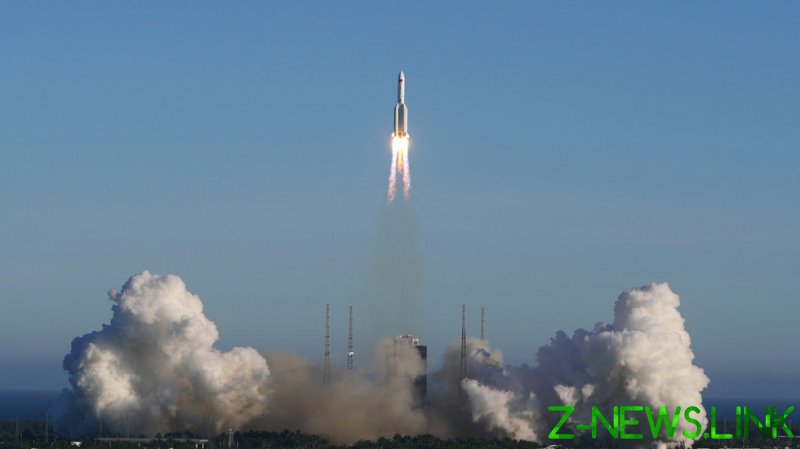
Asked on Thursday about the unguided Long March 5B rocket parts careening toward the planet at some 15,000 miles per hour, the defense secretary said the latest estimates suggest it will crash-land sometime on Friday or Saturday, but noted there would be no attempt to blast it out of the sky.
“At this point, we don’t have a plan to shoot the rocket down. We’re hopeful it’ll land in a place where it won’t harm anyone – hopefully in the ocean or someplace like that,” Austin said, also taking a thinly veiled jab at Beijing over the incident.
In a follow-up question from a reporter, Austin was pressed on whether the military actually has the ability to shoot down the rocket should that become necessary, to which he said “we have the capability to do a lot of things,” but reiterated that no shoot-down is in the cards.
The Pentagon initially said it was tracking the rocket stage earlier this week, with the 18th Space Control Squadron of the US Space Force releasing updates on its flight path on a special website. The exact trajectory of the 22-ton craft won’t be known until just a few hours before it crashes down, however.
Amid that uncertainty, Russia’s space agency Roscosmos released a map showing possible places of impact earlier on Thursday, which covered a large part of the US – including Los Angeles, New York and Washington, DC – as well as Latin America, Africa, Australia and South Asia. Some components of the rocket booster are expected to disintegrate in the atmosphere, but “individual non-combustible structural elements can reach the Earth’s surface,” the agency added.
Though there is a small chance the rocket could touch down on land, some experts, such as Harvard University astrophysicist Jonathan McDowell, argue it is extremely unlikely any debris would hit a person, calling the risk “incredibly tiny.”
The Chinese rocket was sent into orbit late last month, embarking on an 18-month project to construct Beijing’s first-ever space station. The successful April 30 launch put the station’s first module – dubbed Tianhe, or “Harmony of the Heavens” – into low Earth orbit, set to be joined by two smaller modules in the coming months. While the rocket stage detached from the Tianhe module as intended, it was unable to maneuver into a safe deorbiting path for a controlled reentry.
Think your friends would be interested? Share this story!
© 2021, paradox. All rights reserved.





